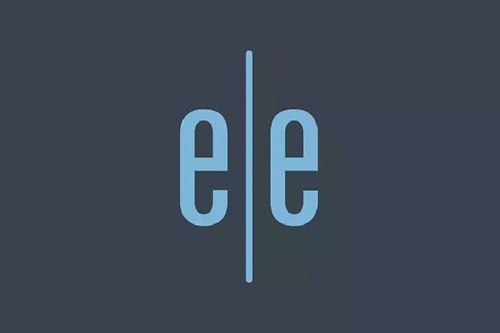Consumer Protection
Overview
Edgeworth’s consumer protection experts support clients facing allegations related to false advertising, product liability, data privacy, and consumer financial protection across all stages of litigation—from assisting with discovery, to providing economic analyses related to class certification and assessing potential damages at trial.
Our work includes both class action and individual action litigation support related to alleged product misrepresentation, product mislabeling, labeling omissions, product defects, cyberattack liability, release of sensitive and personally identifiable information in a data breach, inappropriate determination of product payments, improper overdraft fees, unauthorized fee-based program changes, and hidden lending fees.
We utilize our experts’ decades of professional experience analyzing economic and econometric issues in bet-the-company litigation to study claims of economic injury and damages across a broad range of industries, including consumer products, pharmaceuticals, financial services, transportation, manufacturing, technology, communications, nutritional supplements, and food products.
Case Highlights
Case Highlights
- Litigation | 04.22.2022
- Litigation | 02.11.2022
- Litigation | 08.14.2019
- Litigation | 04.15.2015
- Litigation | 03.09.2015
- Litigation | 04.14.2014
- Litigation | 05.21.2013
- Litigation
Insights & News
Publications
- Published Article, Journal of Direct Selling Research | 01.24.2025
On April 30, 2024, the FTC published updated Business Guidance Concerning Multi-Level Marketing that details the current principles and practices that the FTC considers in its assessment of whether an MLM is offering an unlawful compensation structure and operating as a pyramid scheme.
- ABA Antitrust Law Section’s Economics Committee | 11.14.2024
“Dark patterns” is a term used to describe potentially deceptive app or website designs that could manipulate consumers to make choices they would otherwise not make.
- Published Article, Law360 | 08.09.2024
On April 30, the FTC published updated business guidance concerning multilevel marketers, or MLMs. This 2024 guidance details the current principles and practices that the FTC claims to consider in its assessment of whether an MLM is offering an unlawful compensation structure and operating as a pyramid scheme.
- Published Article, CPI Antitrust Chronicle | 04.30.2024
In this piece published in the CPI Antitrust Chronicle, Edgeworth experts Tram Nguyen and Connor Moynihan review recent criminal antitrust cases involving expert witness testimony to highlight the types of economic analyses that were utilized in these matters and discuss the likely increase in reliance on expert economic testimony in the future.
- Published Article, Bloomberg Law | 04.12.2024
Mike Kheyfets compiled a unique database of over 100 BIPA settlements and studied the evolution of damages issues BIPA litigation cases. The research, including a look ahead to what the findings may mean for the future, were published today in Bloomberg Law.
- Published Article, Law360 | 03.07.2024
Sushrut Jain and Valentina Bernasconi discuss damages estimation in class action suits with allegations of excess "slack-fill" in the packaging of consumer goods.
- Published Article, Law360 | 06.28.2023
While the direct-selling world was awaiting U.S. District Judge Barbara Lynn's decision in Federal Trade Commission v. Neora LLC, in which the FTC alleged that Neora operated an illegal pyramid scheme, the FTC v. Noland case largely flew under the radar.
- Our Curious Amalgam | 01.10.2023
In this podcast, Edgeworth partner Michael Kheyfets discusses the economics of valuing personal information and approaches to quantifying harm in data privacy litigation.
- Published Article, Bloomberg Law | 09.19.2022
What does it mean for “data” to have “value”? And what does it mean for the “value” of “data” to “be lost” as a result of unauthorized disclosure in a cyberattack? This article provides an introduction for practitioners to the economic concepts behind these questions.
- Published Article, Law360 | 04.12.2022
Over the past decade, there has been a notable increase in the number of class actions brought against manufacturers of food and consumer packaged goods, specifically with respect to allegations of false claims in advertising and product labeling. In such cases, plaintiffs typically allege that consumers were harmed because they paid higher prices than they would have paid had they possessed complete information.
- Law360 | 06.09.2021
Cybersecurity incidents are evolving and raising increasingly complex issues relating to class certification and economic impact. In this article, Edgeworth Economics Partner Michael Kheyfets explores the nature of continuously evolving cyberattacks and the legal frameworks necessary to study impact and damages.
- Published Article, Law360 | 08.28.2020
In this Law360 article, Edgeworth Partners Dr. George Korenko and Matthew Milner provide a primer on the economics of class certification and discuss the application of economics to price gouging class actions.
- Journal of Technology Law & Policy | 05.28.2019
Edgeworth Partner Michael Kheyfets' article provides a study of how economic tools are applied to the analysis of class certification and damages issues in the emerging area of data breach class actions.
- Privacy & Security Law Report | 02.01.2017
Edgeworth Partner Michael Kheyfets co-authored an article in Bloomberg Law's Privacy & Security Law Report.
- ABA Consumer Financial Services Committee Newsletter | 08.05.2016
In this article written for the ABA Consumer Financial Services Committee Newsletter Dr. Stephen Bronars explores the implications of behavioral economics on consumer financial services law.
- Information Law Journal | 01.27.2016
In this article published in the ABA Information Law Journal, Michael Kheyfets and Matthew Milner discuss economic analysis as it applies to litigation matters filed by financial institution classes.
- Law360 | 07.17.2015
Dr. Stephen Bronars and Chuck Fields, along with Christopher Craig of O’Melveny & Myers, co-authored the article in Law360.
- Law360 | 05.14.2015
Michael Kheyfets, a partner at Edgeworth, discusses emerging trends in data breach and privacy litigation in Law360.
- Law360 | 11.25.2014
In this article, Edgeworth experts highlight the multifaceted approach companies utilize as part of data breach management.
- Law360 | 09.19.2014
Matthew Milner discusses the counter factual paradigm economists use to analyze fact of injury and damages in data breach class actions.
- Law360 | 05.30.2013
Dr. Jesse David gives an economic perspective of food labeling cases by discussing the “predominance” requirement for class certification.
Edgeworth Insights
- Blog, 01.24.2025
On April 30, 2024, the FTC published updated Business Guidance Concerning Multi-Level Marketing that details the current principles and practices that the FTC considers in its assessment of whether an MLM is offering an unlawful compensation structure and operating as a pyramid scheme.
- Blog, 11.12.2024
“Dark patterns” is a term used to describe potentially deceptive app or website designs that could manipulate consumers to make choices they would otherwise not make.
- Blog, 09.04.2024
In late June 2024, a four-day bench trial was held in the U.S. District Court for the Northern District of Texas to determine if American Airlines had violated its duties to employees by allowing the asset managers of its employees’ 401(k) plans to pursue environmental, social and governance (“ESG”) goals.
- Blog, 08.09.2024
On April 30, the FTC published updated business guidance concerning multilevel marketers, or MLMs. This 2024 guidance details the current principles and practices that the FTC claims to consider in its assessment of whether an MLM is offering an unlawful compensation structure and operating as a pyramid scheme.
- Blog, 04.29.2024
The use of economic analysis as a tool to assess issues in per se criminal antitrust violations has been a source of debate.
- Blog, 04.12.2024
Mike Kheyfets compiled a unique database of over 100 BIPA settlements and studied the evolution of damages issues BIPA litigation cases. The research, including a look ahead to what the findings may mean for the future, were published today in Bloomberg Law.
- Blog, 03.11.2024
Sushrut Jain and Valentina Bernasconi discuss damages estimation in class action suits with allegations of excess "slack-fill" in the packaging of consumer goods.
- Blog, 10.11.2023
Artificial intelligence (“AI”) has long been a hot topic across various industries, including the legal sector, especially with the recent breakthrough of innovative generative AI system—Large Language Model (“LLM”) applications like ChatGPT that can process and generate humanlike text in real-time. These technologies can revolutionize the way legal cases are managed, making it more critical than ever for professionals in the legal industry to learn how to harness the power of generative AI to their advantage—and to understand the limits of its capabilities.
- Blog, 10.05.2023
U.S. District Judge Barbara Lynn's decision in Federal Trade Commission v. Neora LLC in the U.S. District Court for the Northern District of Texas last week marks a landmark victory for the direct selling industry.[1]
- Blog, 08.08.2023
Biotechnology companies Natera and CareDx have been engaged in a prolonged legal battle regarding the validity of patents covering methods of cell-free DNA analysis for noninvasive monitoring of organ transplant rejection. The case has been lauded by the legal community as the “last chance for diagnostic patents” to be reviewed by the Supreme Court.[1]
- Blog, 02.07.2023
In July 2021, the White House ordered the Consumer Financial Protection Bureau (CFPB) to promote competition in consumer financial markets through enforcement actions or rule-making. As a result, the CFPB is now poised to begin regulating and enhancing competition in consumer finance.
Speaking Engagements
- Presentation, Washington, DC | 09.23.2023
Edgeworth's Dr. Branko Jovanovic will speak on a panel about the economics of privacy at the 51st Research Conference on Communications, Information and Internet Policy.
- Presentation, Washington, DC | 09.21.2023
Edgeworth partner Dr. Branko Jovanovic will speak on the panel "Economic Analysis of Lawful Compensation Models" at the DSA's annual Legal & Regulatory Seminar.
- Event, 04.18.2023
- Event, 05.05.2015
Matthew Milner and Michael Kheyfets of Edgeworth Economics and Jeff Landis of ZwillGen PLLC will present a mock case to examine the elements and potential theories of harm in data breach litigation.
News
- Press Release, 09.12.2023
In an environment of heightened regulatory focus on consumer protection issues at both the federal and state levels, Edgeworth Economics announces the formal launch of its Consumer Protection practice.
- Press Release, 06.28.2023
Edgeworth Economics is pleased to welcome Dr. Branko Jovanovic as a Partner in the firm’s Washington, DC office. Dr. Jovanovic brings over two decades of experience in consumer class action litigation and a wide array of regulatory matters.
- News, 05.21.2014
Dr. Jesse David spoke at the “Challenges Facing the Food and Beverage Industries in Complex Consumer Litigations” Conference.
- News, 05.31.2013
Dr. Jesse David discusses the “predominance” requirement for class certification in Law360.
Of Significance Podcast
- 03.18.2025
The Oscars have Steve, Brent, and Nathan wondering how much an Oscar award is worth and why studios want to get them in the first place. To help sort through the box office economics, they bring back anti-trust/false advertising expert and filmmaker Sushrut Jain and explore the ways studios actually make money and their underlying incentives.
- 01.07.2025
As more companies use AI models to improve their operations, some worry that companies in the same industry might be relying on other companies' private data to set unfair prices for consumers.
- 09.03.2024
In a podcast first, Nathan, Steve, and Brent interview false advertising expert, Sush Jain, about how a false advertising claim works, how damages are potentially assessed, and why the market for goods can be so confusing.
Practice Contacts
- Partner
- Partner
- Partner
- Managing Principal
Experts
- Principal Consultant
- Principal Consultant
- Principal Consultant







